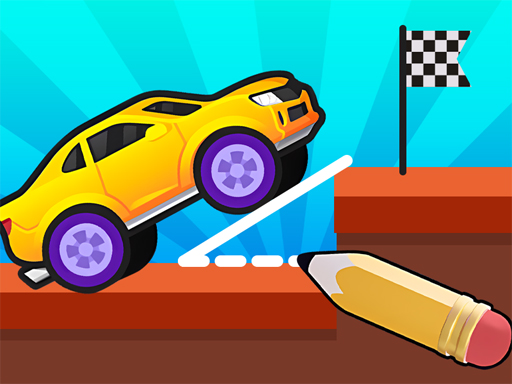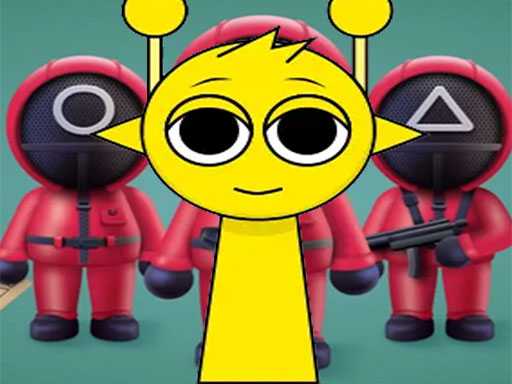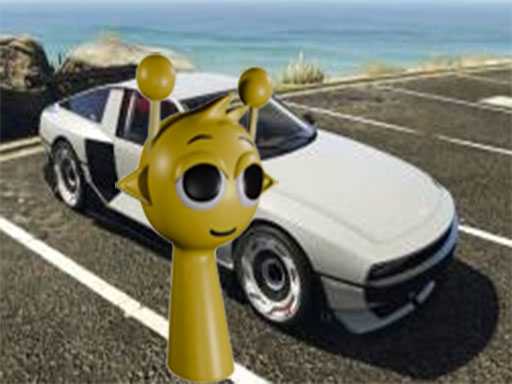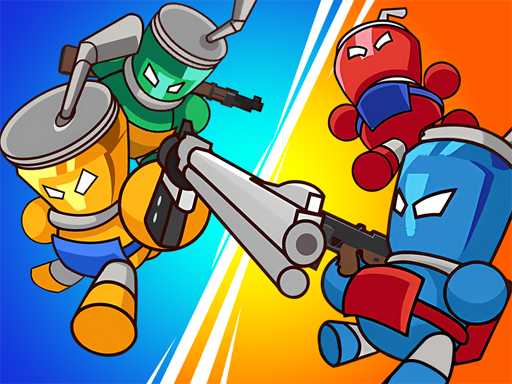
Car Games: Draw and Escape – The Joyful Road Between Imagination and Precision
Ever had that childhood urge to draw your own racetrack across the living room floor? If you’ve ever used crayons to connect toy cars from couch to table, Car Games: Draw and Escape will feel like a nostalgic little miracle.
This game takes that innocent fun — the scribbles, the “what if I make a ramp here?” ideas — and turns it into an interactive playground of physics, logic, and creativity. It’s not just about driving; it’s about drawing your destiny, one clever line at a time.
At first glance, it might look like a simple “draw the bridge” game. But play a few rounds, and you’ll quickly discover it’s much more — part puzzle, part art project, and part comedy of errors (especially when your bridge collapses spectacularly).
Now, let’s take a scenic drive through everything that makes Car Games: Draw and Escape such a delightful and surprisingly clever experience.
Drawing Your Way to Victory: The Gameplay Basics
Like every great journey, this one starts with a simple line — quite literally.
The Setup: A Tiny Car and a Big Problem
Each level presents a small yellow car on one side and a finish line on the other. Between them? Obstacles, cliffs, and gaps that no normal vehicle could cross.
Your mission: draw a bridge or path to guide the car safely to its goal.
Sounds easy, right?
Then you watch your first hand-drawn ramp collapse like soggy spaghetti, and suddenly you realize — this is where the fun begins.
The game’s mechanics are beautifully straightforward:
- Use your mouse or finger to draw a line.
- That line becomes a physical structure once you release it.
- Then, the car drives automatically — either soaring, tumbling, or triumphantly rolling across your creation.
And every victory feels earned, because the success depends entirely on your drawing skill and physics intuition.
The Beauty of the Draw
The game’s visual simplicity hides a clever physics engine. Each line you draw follows real-world physics: weight, angle, gravity, and momentum all matter.
Ever drawn a bridge too thin? It’ll snap. Too steep? The car flips. Too short? Goodbye, little yellow car.
But when you finally get it right — when that car crosses your carefully drawn arc — you’ll smile like a proud engineer.
It’s that mix of failure, learning, and laughter that makes Car Games: Draw and Escape so addictive.
On the other hand, the real magic appears once you start thinking not like a driver… but like a designer.
The Art of the Line: Strategies That Make You a Master Builder
Let’s be honest: half the fun comes from watching what doesn’t work. But once you start chasing perfection, strategy becomes everything.
Start Small, Think Smart
The golden rule: simple lines beat fancy shapes. Many beginners overdraw — adding loops, ramps, and curls that look cool but waste precious space.
A clean, curved line offers stability and speed. Remember, the car doesn’t need art — it needs balance.
Try asking yourself: Would a real bridge hold up like this? If the answer is “probably not,” then your car is about to take a nosedive.
Gravity Is Both Friend and Foe
One of the cleverest mechanics here is the use of gravity. Slopes add momentum, helping your car glide effortlessly — but too steep, and it’ll somersault.
The trick is to use natural drops to your advantage. A slight downhill section before a gap gives your car speed, while an upward slope at the end catches it safely.
As a player once joked on a gaming forum, “In this game, gravity is your boss — it pays you for creativity but fires you for overconfidence.”
Perfecting the Path
To make this easier, here’s a quick reference table for the most effective drawing strategies:
| Situation | Common Mistake | Smart Strategy | Why It Works |
|---|---|---|---|
| Small Gap | Drawing flat line | Slight curve down then up | Adds momentum |
| Large Gap | Overly steep ramp | Gradual slope with mid-support | Prevents collapse |
| Cliff Drop | Straight line | Smooth “U” shape | Cushions landing |
| Moving Obstacles | Ignoring timing | Draw delayed slope | Syncs car with motion |
| Multiple Cars | Shared single line | Separate stable paths | Prevents collisions |
Testing and Tweaking
Never be afraid to fail. Each failure teaches you something — a line too thin, a ramp too sharp. The trial-and-error loop is not a punishment; it’s the heart of the experience.
Have you ever found yourself cheering for a cartoon car? You will here. Especially when it somehow survives your crooked creation and crosses the line like a champ.
Now that we’ve drawn our way to competence, let’s talk about who can enjoy this delightful mess — and how.
The Family-Friendly Genius: Why Kids and Parents Both Love It
Like the best puzzle games, Draw and Escape works on two levels — silly fun for kids, and sneaky brain training for adults.
For Kids: Creativity Meets Physics
Children adore the drawing aspect. There’s freedom, imagination, and instant feedback — a perfect combination for young minds.
It teaches them real-world lessons too:
- Problem-solving: Each level requires unique thinking.
- Spatial awareness: Understanding slopes, gaps, and curves.
- Persistence: Fail, adjust, retry — a soft lesson in resilience.
And unlike many kids’ games, it rewards experimentation, not just correctness. Kids quickly learn that there’s more than one solution — and that’s empowering.
It reminds me of a story: a parent once shared that their 8-year-old spent hours trying to make the “funniest ramp ever” — one that sent the car spinning 360° before landing perfectly. They failed 20 times… and the joy when it worked? Pure victory.
For Parents: Brain Exercise with a Smile
Adults might start “just to test it,” but quickly get hooked. The satisfaction of crafting the perfect line is oddly meditative.
It also doubles as a casual logic exercise. Each success tickles the brain’s reward centers, similar to solving a crossword or Sudoku — only with more laughter.
According to Wikipedia’s overview of game-based learning, interactive puzzles that rely on feedback and repetition can significantly enhance creative problem-solving. Car Games: Draw and Escape fits that model perfectly — disguised as a toy.
From family fun to educational play, it’s a bridge (pun absolutely intended) between joy and learning.
Now, let’s shift gears into something every player craves — how to truly master the game.
From Doodles to Domination: Advanced Player Tactics
Once you’ve learned to draw stable bridges, the real challenge begins. Advanced play is all about efficiency — using fewer strokes for smarter results.
The Power of the First Line
Your first line determines momentum, direction, and balance. Start too high, and your car may fall off; too low, and you lose speed.
Pro tip: begin your line just below the car’s base. This tiny detail ensures smoother contact and better stability when motion begins.
Minimalism Wins Races
Every extra curve adds risk. Experienced players aim to complete each level with a single continuous line, like an artist signing their name.
If you can connect start and finish cleanly with one line, you’ve achieved true mastery.
Creative Engineering
Some players invent their own solutions — draw suspension-style arcs, tunnels, or trampolines. Others prefer minimal bridges with strategic bumps that launch the car forward.
That’s the beauty of it: no two players solve a level exactly alike.
Here’s a quick pro tip list for advanced players:
- Draw slowly — rushed lines lead to weak bridges.
- Think ahead — picture the car’s path before starting.
- Use curves, not corners. Sharp angles break easily.
- Keep your drawing short and direct.
- Replay levels to test alternate physics outcomes.
Every new attempt teaches you something about momentum, stability, and precision — lessons that even engineers could appreciate.
The Emotions Behind Every Scribble
Now that we’re drawing like pros, let’s pause for something deeper. Why does this simple game feel so satisfying?
Laughter in Failure
It’s impossible not to laugh when your car zooms confidently into a gorge because you forgot to draw an ending. The visual humor of physics gone wrong gives Draw and Escape a slapstick charm.
Kids giggle, adults chuckle — and everyone presses “retry.”
The Joy of Control and Creation
There’s something fundamentally human about drawing to solve problems. You’re not following instructions — you’re inventing them.
Each bridge you make is your creation, your temporary masterpiece. The car doesn’t move until you decide its fate.
That small act of creation — seeing your idea come to life — sparks pride, curiosity, and creativity in equal measure.
It’s like doodling meets engineering.
Visuals, Sound, and the Zen of Simplicity
If Car Games: Draw and Escape were music, it’d be lo-fi beats for the brain.
Visual Appeal
The bright yellow car, clean backgrounds, and soft colors keep everything friendly and inviting. The visuals are minimalist but effective — letting the physics and motion take center stage.
Every scribble you make stands out clearly, making it easy to test, tweak, and laugh at your own designs.
Audio Cues
Gentle engine sounds and cheerful effects accompany success. The moment that finish line flag waves? You’ll find yourself smiling, maybe even doing a little fist pump.
The sound design reinforces focus — never overwhelming, always motivating.
It’s the kind of game you can play during a break, or even while listening to your favorite playlist.
Accessing the Game: Simple and Free
Another great thing about Draw and Escape is its accessibility. You don’t need fancy gear — just curiosity and a steady hand.
It’s playable on:
- PC browsers (through platforms like CrazyGames or SilverGames)
- Mobile devices — Android and iOS compatible
- Touchscreens — perfect for tablets and styluses
No downloads, no complex menus. Just tap, draw, and play.
It’s the definition of “pick up and play,” making it ideal for classrooms, travel, or quiet family time.
The Educational Side: Learning Through Play
Games like this aren’t just for fun — they’re little lessons in logic and physics disguised as entertainment.
Hidden STEM Lessons
- Physics: Learn about gravity, angles, and tension.
- Engineering: Understand balance and design efficiency.
- Math: Visualize slopes, curves, and motion arcs.
- Art: Express creativity through drawing shapes.
Teachers and parents often use such games to introduce STEM ideas gently. It’s a perfect way to teach without feeling like teaching.
Problem-Solving as a Skill
Each puzzle rewards persistence and experimentation. Children (and adults) develop patience — learning that failure isn’t an end, but part of progress.
And who knows? Today’s Draw and Escape fan might become tomorrow’s civil engineer or artist.
Now that we’ve crossed both the logical and emotional bridges, let’s coast toward the finish line with style.
Why We Keep Coming Back: The Heart of Draw and Escape
At its core, Car Games: Draw and Escape isn’t just a game — it’s a celebration of imagination meeting physics.
It reminds us that play isn’t about perfection. It’s about trial, error, laughter, and the sweet satisfaction of watching your idea — your little doodle — actually work.
In a world full of complex, high-definition games, this one stands out for its simplicity and joy. It brings families together, tickles the creative brain, and teaches lessons that linger long after you close the tab.
So grab that virtual pen. Draw boldly. Fail hilariously. And when your tiny yellow car finally crosses the line, remember — that was your bridge. Your idea. Your little triumph over gravity.
And isn’t that what gaming’s all about?
For Your Social
Share your most brilliant — or funniest — bridge creations online! Whether your car soared like a champion or nose-dived like a pancake, your triumphs deserve an audience.
Use these hashtags to join the fun:
#DrawAndEscape #CarGames #BrainPuzzle #STEMPlay #FamilyGaming #CreativeMind #ArcadeFun #LogicAndLaughs




